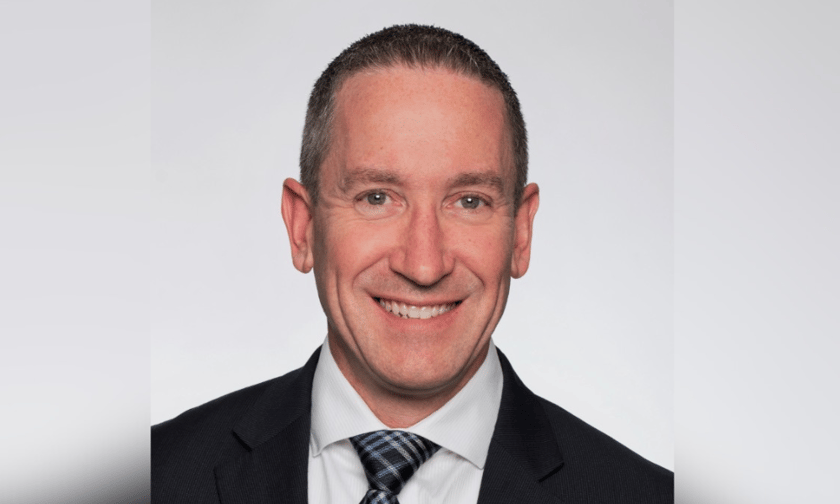

With increasing consolidation and evolving ownership structures among Canadian brokerages, the role of the principal broker is coming under pressure.
Former BrokerLink executive John Baizana (pictured) has seen a troubling trend in the brokerage industry. He’s seen principal brokers sidelined, reduced to little more than a regulatory checkbox, while key decisions are made by individuals who don’t hold a brokerage license. It’s an issue he wants people to think about.
“Brokerages themselves are under regulatory requirements to act in the best interests of their clients or the consumers,” Baizana told Insurance Business. “Individuals, if they’re not licensed, are not necessarily held to those rules. So, when decisions are made in an ivory tower, and the principal broker is not involved in those decisions, it could negatively affect the frontline brokers.”
Baizana’s concern isn’t just about job titles or corporate structure; it’s about the fundamental integrity of the brokerage model.
Principal brokers exist to ensure that brokers operate within regulatory guidelines and, most importantly, to put the client’s interests first. “Someone unlicensed… their first priority might be to the shareholder, where a broker’s priority is to the consumer,” Baizana said.
This dynamic, he stressed, can create a disconnect between the people who are accountable for compliance and those making business decisions. When unlicensed executives prioritize profitability or shareholder returns over regulatory obligations, the brokerage’s commitment to consumers gets diluted.
The problem is also compounded by the hierarchy within brokerages. A principal broker might technically hold an authoritative role, but if they don’t have real decision-making power, they can’t enforce the very regulations they’re responsible for upholding.
“Unfortunately, if they’re a low-level manager in the corporation that doesn’t have a say on the operational decisions, how can they prevent their own brokers from fulfilling their duties?” Baizana said. “They need to be in the room where it happens.”
The pressure on principal brokers isn’t just about navigating the internal politics of their company; it’s about fighting for their role to be taken seriously in the first place. Baizana urged principal brokers to push back when leadership is fixated on aggressive growth at the expense of regulatory compliance.
“It’s an added challenge for principal brokers because their role isn’t just to make sure the brokers, the frontline brokers, are acting under their rules and regulations. They now also have that added duty to teach unlicensed individuals the ethical roles and responsibilities that brokers have been entrusted with,” Baizana said.
That extra burden doesn’t come with a clear roadmap. There’s no rule that mandates a brokerage must be run by licensed individuals, meaning principal brokers often find themselves trying to impose regulatory discipline in an environment where they are outnumbered. But this only reinforces the importance of having strong principal brokers who are willing to hold the line, Baizana pointed out.
Convincing leadership that compliance isn’t just a formality, but a long-term business strategy is part of the battle for principal brokers. Some executives may view regulations as red tape. Baizana challenged that mindset.
“There’s nothing wrong with financial growth. Profit isn’t a four-letter word by any means,” he said. “As long as compliance is built into that, the better you treat your clients, the more you’re going to grow as a business.”
Baizana’s message has struck a chord. Since raising the issue in an op-ed posted on Linkedin, he said he has heard from many in the industry who share his concerns. “I’ve received a lot of support,” Baizana said. “Some will post on LinkedIn, and some will send me private messages saying that they agree with it.”
That level of response shows just how widespread the issue is. Principal brokers across the industry are grappling with the same frustrations: trying to enforce regulations in an environment that doesn’t always prioritize them, struggling to be heard in a boardroom where financial growth often trumps compliance, and shouldering the extra burden of educating those who don’t answer to the same rules.
Baizana didn’t start this conversation expecting easy answers. But he emphasized that principal brokers need to take a hard look at their role and demand the authority that comes with it.
“Principal brokers… should ask themselves, ‘Before accepting the role, am I going to get the support I need to fulfill my duties?’” he said. “Those that perhaps are in those situations right now to look at and say, ‘Am I truly fulfilling the role?’”
Do you have something to say about the challenges facing principal brokers? Please share your thoughts below.
